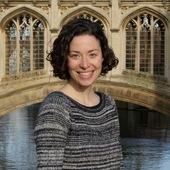Dietrich Bonhoeffer and Today’s Movement for Racial Justice
Walking through the park this weekend I noticed a man on a bench reading Metaxas’ acclaimed biography of German theologian and anti-Nazi dissident Dietrich Bonhoeffer. And it occurred to me then and there that this is indeed a moment in our history when we may acquire much needed insight and inspiration by revisiting Bonhoeffer’s extraordinary life and legacy.
Bonhoeffer was born in 1906 in Breslau, Germany into a large and prominent family – which included his father, noted psychiatrist and neurologist, Karl Bonhoeffer. The younger Bonhoeffer graduated from the Protestant Faculty of Theology at the University of Tübingen and went on to complete his Doctor of Theology degree from Berlin University in 1927.
In 1930, Bonhoeffer went to the United States for postgraduate study and a teaching fellowship at New York City’s Union Theological Seminary. Perhaps the most important part of his stay in the US was being introduced to the Abyssinian Baptist Church in Harlem, where he would not only teach Sunday school and form an abiding love for black spirituals – recordings he brought back to Germany would become “some of his most treasured possessions” – Bonhoeffer would also hear Adam Clayton Powell Sr. preach the “kingdom of social justice.” Powell had the fire of a revivalist preacher, combined with “great intellect and social vision” – he actively condemned racism and “minced no words about the saving power of Jesus Christ.”
Finding in Powell the gospel preached and lived out according to God’s commands, Bonhoeffer became acutely aware of the injustice and subjugation experienced by minorities and began to adopt the standpoint of the oppressed. He remarked, "Here one can truly speak and hear about sin and grace and the love of God...the Black Christ is preached with rapturous passion and vision."
Returning to Germany in 1931, Bonhoeffer lectured in systematic theology at the University of Berlin – but his promising career as an academic would be derailed by the rise of Nazism, and Hitler’s installation as Chancellor in 1933.
Bonhoeffer resisted the Nazi regime from the very beginning and never wavered. Within days of Hitler’s election, he gave a radio address in which he denounced Hitler and admonished the people against forming an idolatrous cult of the Führer (leader), who could easily turn out to be Verführer (or misleader) – a distinction Donald Trump’s blind followers would do well to remember.
In April 1933, Bonhoeffer was the first to assert the church’s opposition to Hitler's persecution of the Jews and insisted that the church cannot merely "bandage the victims under the wheel,” but must “jam a spoke in the wheel itself."
Bonhoeffer’s theology was a theology of the oppressed, and his active involvement in the German resistance against Hitler followed from his moral awareness that “the structure of responsible action includes both readiness to accept guilt and freedom,” as he wrote in his Ethics – for “If any man tries to escape guilt in responsibility he detaches himself from the ultimate reality of human existence...” A life spent in fear of incurring guilt was itself sinful. In this respect Bonhoeffer is essentially in agreement with G.F.W. Hegel: only a stone can be innocent; all meaningful action entails guilt – and we must act. As Bonhoeffer observed: “Silence in the face of evil is itself evil: God will not hold us guiltless. Not to speak is to speak. Not to act is to act.”
The Cost of Discipleship (1937) – an extended commentary on the Sermon on the Mount – is generally regarded as Bonhoeffer’s masterpiece. In Chapter 4, he considers that passage from Mark 8:34, where Christ says, “If any man would come after me, let him deny himself, and take up his cross, and follow me.” From an ethical standpoint this is all-important: as Bonhoeffer famously said, “When Christ calls a man he bids him come and die.” This may not mean actual martyrdom (though it certainly might): it means first of all that we must die to ourselves. In his commentary he writes, “Just as Christ is Christ only in virtue of his suffering and rejection, so the disciple is a disciple only in so far as he shares his Lord’s suffering and rejection and crucifixion.”
To ‘deny oneself’ has nothing to do here with asceticism or suicide, both of which retain an element of self-will. Rather, “it is to be aware only of Christ and no more of self, to see only him who goes before and no more the road which is too hard for us.” Self-denial then is inseparable from the obedience of the responsible one who hears the call and says, “Here I am” (hineni) – for “faith only becomes faith in the act of obedience,” not to any man-made law or worldly authority, but to God, whose call reaches us through the voice of our oppressed and persecuted neighbor.
Bonhoeffer makes the crucial distinction – as important now as it ever was – between “cheap grace” and “costly grace.” Cheap grace means grace without price, without cost, “everything can be had for nothing.” Bonhoeffer reminds us that we are still in the fight for costly grace, “which calls us to follow... It is costly because it costs a man his life, and it is grace because it gives a man the only true life.”
Costly grace affirms that you can only discover what obedience is by obeying. It is no use asking questions – questions such as, ‘Who is my neighbor?’ “You are the neighbor. Go along and try to be obedient by loving others… Neighborliness is not a quality in other people, it is simply their claim on ourselves... We literally have no time to sit down and ask ourselves whether so-and-so is our neighbor or not. We must get into action and obey – we must behave like a neighbor to him.”
Bonhoeffer was arrested in 1943 by the Gestapo – two years later, at dawn on 9 April 1945, he was led naked to the gallows and hanged to death, a few weeks before Hitler would commit suicide.
Throughout the last two weeks, we have witnessed across the country protests against systemic racism and police brutality – and indeed protesters have gathered in cities around the world, from London to Hamburg, from Pretoria to Brisbane. Blacks and whites are rising up in unison to oppose the systematic subjugation of people of color – a subjugation which began over four hundred year ago when the first slave ships arrived on these shores.
Bonhoeffer’s life holds an important lesson for us today, regardless of our religious affiliation or lack thereof. And simply put it is this: you are called upon; you are called on behalf of your neighbor. When you are called to be responsible that is not an obligation which you can decline, discharge or acquit yourself of – it is an infinite responsibility, a “forever commitment” as Charles Blow recently put it. And we all must be prepared to make any sacrifice necessary when we are called.
At times like these we see the difference between those who are satisfied with cheap grace and those who know that true grace comes at a price, and that price is obedience to the call of God which we hear in the choking, gasping cries of our neighbor, in the desperate pleas of the man who is down on the ground with an oppressor’s knee on his neck.
Sam Ben-Meir is a professor of philosophy and world religions at Mercy College in New York City.


















